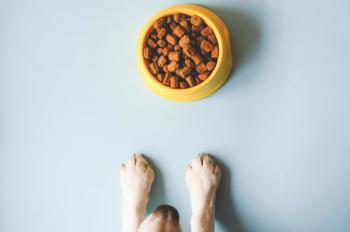
District court rules in favor of veterinary compounding pharmacy
Ocala, Fla. - The U.S. Food and Drug Administration lost its first attempt at shutting down a veterinary compounding operation Sept. 12, when a U.S. District Court denied its motion for a permanent injunction against Franck's Pharmacy of Ocala, Fla.
OCALA, FLA. — The U.S. Food and Drug Administration lost its first attempt at shutting down a veterinary compounding operation Sept. 12, when a U.S. District Court denied its motion for a permanent injunction against Franck's Pharmacy of Ocala, Fla.
"Obviously we're very happy with the opinion of the judge," says Paul Franck, RPh, FIACP, chief executive office and owner of Franck's Pharmacy. "But it's really good for all compounders so we have a better understanding now of what we can and can't do legally."
Attention was brought to Franck's compounding practices in April 2009, after medication error that resulted in high doses of selenium concentration killed 21 polo ponies from Venezuela at the U.S. Open Polo Championship. Franck's had prepared the compounded medication for the polo team's veterinarian. Neither the veterinarian nor Franck's noticed the mathematical error in the conversion of an ingredient that lead to the compounding error.
Animal and veterinary drug compounding accounts for about 40 percent of the business at Franck's—which has been compounding medicals for humans and animals since 1985, according to court records. The company receives orders from all over the country and holds valid pharmacy licenses in 47 states, filling roughly 37,000 animal-drug prescriptions annually.
FDA scrutiny first surfaced against Franck's in January 2005, when the agency sent the company a warning letter expressing concern that the pharmacy was manufacturing drugs and that compounding was being performed outside the context of a valid veterinarian-client-patient relationship. Franck's worked with the FDA to address its concerns and continued compounding as usual until the agency filed suit against the compounding pharmacy in April 2010.
The suit, filed in U.S. District Court for the Middle District of Florida, claimed that animal medications compounded from bulk ingredients could not be distributed without an FDA-approved new animal drug application. But Franck's argued that the traditional, state-licensed practice of compounding commercially unavailable veterinary medications from bulk ingredients is a legal practice followed by licensed pharmacies across the nation.
Franck's voluntarily stopped compounding veterinary drugs in May 2010 following the FDA's filing but resumed in August 2010 after the court denied the agency's motion for a temporary injunction.
The suit came out of the blue, Franck says, adding that the deaths of the polo horses seemed to "ignite the whole complaint from FDA and give them an ulterior reason to come in on us."
The complaint threatened the trust veterinarians placed in the pharmacy, and cost his company a "very substantial" amount in legal fees, Franck says. It resulted in the layoff of 25 employees. Some were brought back gradually as business picked up again, but many of his best employees had already moved away or found employment elsewhere.
Part of Franck's run-in with FDA stemmed from a series of conflicting policy revisions over the years—some of which were not subject to public comment periods, he says.
In his Sept. 12 decision in favor of summary judgment for Franck's Pharmacy and denying FDA's motion for a permanent injunction, U.S. District Judge Timothy J. Corrigan writes "FDA has long been on notice that its statutory authority to regulate traditional, state-licensed veterinary pharmacy compounding was questionable ... It has decided to proceed with this enforcement action, asserting a 'maximalist' interpretation of its authority."
FDA failed to back up other claims against Franck's, including allegations of compounding commercially available drugs or compounding drugs in advance of a valid prescription, Corrigan wrote.
"Here, the FDA's authority to regulate pharmacy compounding as a disguise for manufacturing is not at issue. Rather, utilizing this first-of-its-kind enforcement action, the FDA seeks to expand its statutory authority by enjoining an individual pharmacy which is engaged in traditional pharmacy compounding of animal drugs in compliance with state law. In doing so, the FDA overreaches," Corrigan writes.
Hundreds of pharmacies compound animal medications from bulk ingredients, governed by state regulations, without interference from FDA, Corrigan adds.
"Allowing the FDA to enjoin a pharmacist's traditional, state-authorized practice of bulk compounding of animal drugs could destabilize the pharmacy profession and leave many animal patients without the necessary medication," he writes. "Such a result would be especially troublesome because the FDA's longstanding policy has been to permit, and even promote, pharmacists' compounding from bulk ingredients. The FDA cannot simply upset the expectations it helped to create through decades of inaction without explanation, especially where its asserted expansion of authority impacts the federal-state balance and potentially subjects many individuals and companies to criminal liability."
FDA says it is reviewing the court's decision and has no official statement on the verdict.
Newsletter
From exam room tips to practice management insights, get trusted veterinary news delivered straight to your inbox—subscribe to dvm360.




